UK's biggest modern slavery ring uncovered: Victims forced to wash in canals and work for coffee and chicken
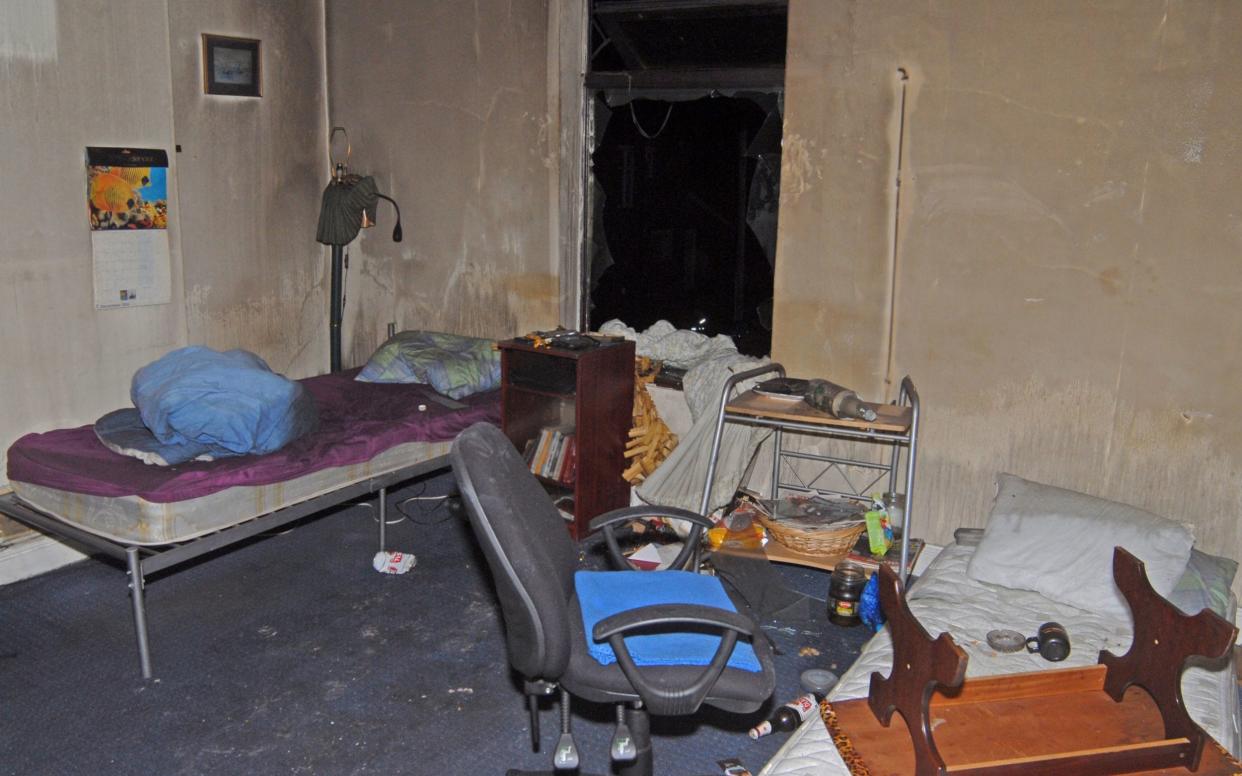
The largest-ever UK modern slavery ring, which forced more than 400 people to work for a pittance while their criminal masters earned £2 million, has been smashed.
A three-year police investigation uncovered a well-organised criminal gang led by the Brzezinski family - which preyed on the homeless, ex-prisoners and alcoholics, from Poland.
The ring lured and then trafficked vulnerable victims to the UK with the promise of good money, but instead housed them in squalor, and used them as what a judge described as "commodities".
Victims were paid as little as 50p for a day's labour and in one case a worker was given coffee and a chicken as payment for redecorating a house.
Another man had to wash in a canal because he had no other access to water, while one house's leaky toilet had to be plugged with an old duvet, such was the standard of disrepair.
One victim, describing "horrible" living conditions, said: "I would say some homeless people here in the UK live better than I lived after I arrived over here."
Victims were reduced to recycling used cigarette butts off the street, and going to soup kitchens and food banks to get enough to eat.
Meanwhile, the gang's bosses lived the high life off the backs of those they exploited, sporting lavish clothes, and driving luxury cars, including a Bentley.
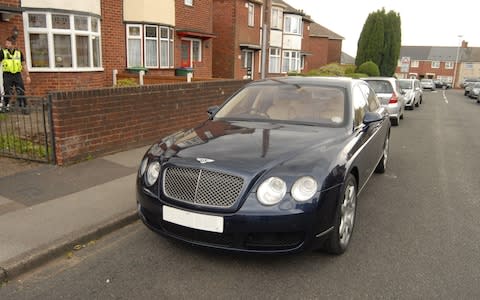
After the end of two trials, it can now be reported how five men and three women, all originally from Poland, exploited their destitute victims for pure "greed".
They have all now been convicted of modern slavery offences and money laundering.
Jurors heard the accounts of more than 90 victims, but it is believed at least 350 more had been through the gang's hands, who had since either returned to their homeland, could not be traced, or were too scared to come forward.
At the end of the second case last month, a jury at Birmingham Crown Court convicted two men, 52-year-old Ignacy Brzezinski, of Beechwood Road, West Bromwich, and Wojciech Nowakowski, 41, of James Turner Street, Birmingham, of modern slavery offences.
A third, Jan Sadowski, 26, of Dartmouth Street, West Bromwich, admitted his part on the first day of trial.
At a previous trial ending in February, leading conspirator Marek Chowanic, along with Ignacy's cousin, Marek Brzezinski, recruitment consultant Julianna Chodakiewicz, Natalia Zmuda and Justyna Parczewska, the group's matriarch, were all convicted of their roles.
At the first trial sentencing, Judge Mary Stacey said their "degradation" of fellow human beings had been "totally unacceptable", jailing the five for between 11 and four-and-a-half years.
She said the defendants had subjected victims to a "demi-life of misery and poverty", robbing them of their dignity and humanity "without care or regard for the rights of the individuals affected".
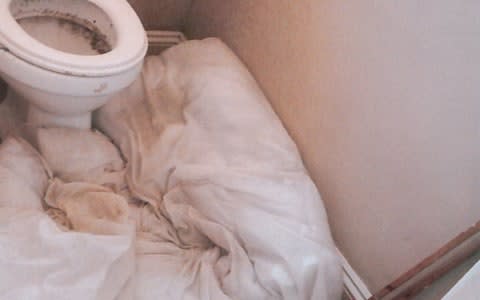
She added: "Any lingering complacency after the 2007 bi-centenary celebrations of the abolition of the English Slave Trade Act was misplaced.
"The hard truth is that the practice continues, here in the UK, often hiding in plain sight."
Together the group helped in the targeting and trafficking of people from their Polish homeland, placing them in cramped, rat-infested accommodation in the Black Country and putting them to work on farms, rubbish recycling centres and poultry factories.
In some cases, the gang waited outside the front gates of jails in Poland, to approach ex-cons who had just been released.
Victims, aged 17 to over 60, were housed across at least nine different addresses in West Bromwich, Walsall, Sandwell and Smethwick, crammed up to four to a room, fed out-of-date food, and forced to scavenge for mattresses to sleep on.
Some had no working toilets, heating or furniture.
If any complained, gang enforcers would humiliate, threaten or beat them up, while "house spies" - previously trafficked individuals turned trusted informers - kept an eye on the workers.
On several occasions, anti-slavery investigators with charity Hope for Justice, and West Midlands Police, uncovered shocking brutality against those who stepped out of line.
One man who complained about living conditions and pay had his arm broken, was refused medical care, and then ejected from the accommodation because his injury left him unable to work.
Another was stripped naked in front of other workers, doused in surgical chemical iodine, and told that the gang would remove his kidneys if he did not keep quiet.
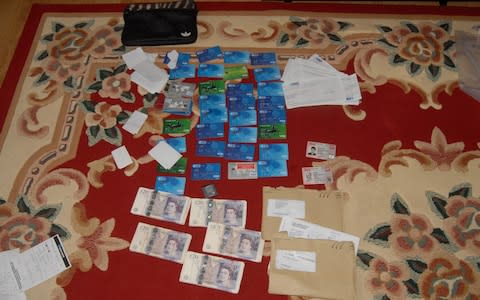
The gang seized identity cards, registered victims for National Insurance and opened bank accounts in the victims' names using bogus addresses, while their criminal masters also claimed benefits without their knowledge.
The ring also infiltrated a recruitment agency, meaning work could be directly sourced, without raising suspicions with third parties.
Victims would in some cases be "frog-marched" to cash points, to withdraw money and told they owed debts for transport costs, rent and food, the charity said.
When one worker died of natural causes at an address controlled by the gang, Parczewska ordered that his ID and personal effects be removed from his pockets before paramedics arrived.
Judge Stacey said the conspiracy, which ran from June 2012 until October 2017, was the "most ambitious, extensive and prolific" modern day slavery network ever uncovered.
Investigators believe it is the largest such criminal prosecution of its type in Europe, to date.
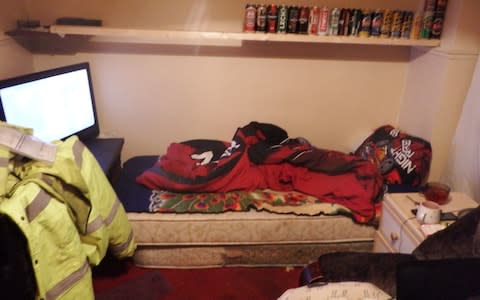
The gang operation was smashed after victims were uncovered by anti-slavery charity Hope for Justice.
The charity said 51 of the victims eventually made contact through its painstaking outreach efforts at two drop-in centres.
The organisation was then able to flag the slavery ring's existence to police.
West Midlands Police then launched an investigation in February 2015.
Opening the second of two trials, Caroline Haughey QC, prosecuting, said: "When you are deprived of your freedoms and exploited for your weakness, that is criminal - and it is of such exploitation and degradation that this case concerns - where human beings have become commodities."
Chowanic, 30, of Mount Street, Walsall, Marek Brzezinski, 50, of Lindley Avenue, Tipton, Chodakiewicz, 24, of Evesham, Worcestershire, Zmuda, 29, of Canute Close, Walsall, and Parczewska, 48, of Beechwood Road, West Bromwich, were jailed in March.
Ignacy Brzezinski, who since conviction has skipped his bail the judge heard, Nowakowski and Sadowski will be sentenced later on Friday.
Abuse shows 'callousness' of gang
The physical and mental abuse of vulnerable modern slavery victims showed the "callousness" of a gang of traffickers behind one of the largest operations ever uncovered by police.
Detective Chief Inspector Nick Dale of West Midlands Police said hundreds of victims were exploited by at least eight people who each played a role in the "largest conspiracy of its type convicted in the UK".
Following the convictions of the five men and three women after two trials, the senior investigating officer said the victims were "trapped" and then "systematically coerced" into working for the gang.
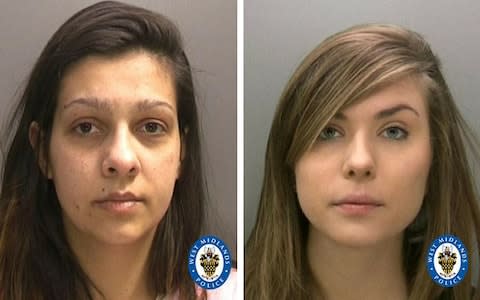
Detailing the facts of the case, Mr Dale said: "We identified 92 victims - we think there were a number more."
He added: "There were, at its height, a total of 12 suspects in the case, so it has been a really long journey to get to where we are now.
"The judge in her summing up for the first case described it as the largest conspiracy of its type convicted in the UK."
Asked if trafficking was a problem in the UK, Mr Dale said: "I think there are a lot of criminal groups who will exploit that will to come to the UK to work.
"We are doing a lot more as organisations, both West Midlands Police and nationally through the National Crime Agency, but I think it is a really difficult problem to tackle.
"I think the point there is we all need to work together to tackle it - we can't solely investigate our way out of this."
Addressing how the victims were persuaded to work for the traffickers, Mr Dale said: "They were legally entitled to work in this country and spend their wages how they saw fit and live where they saw fit.
"But that was abused by traffickers. They would convince the victims that they were unlawfully in the country, that if they left the house the traffickers provided for them they would be arrested by police.
"Sometimes they were given a debt, so they were told that they owed the traffickers £5,000 and had to work off that debt - so there's a lot of these methods the traffickers would use to make them feel trapped."
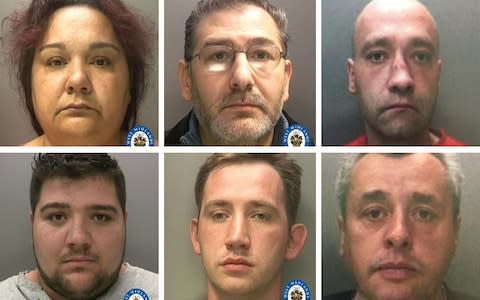
Questioned on how the traffickers chose their victims, Mr Dale said: "They were recruited in Poland because they really needed the work, because they were in a position in life where they needed to get out of that situation.
"For example they might have been recently released from prison, they might have been homeless, suffering from alcoholism, or other issues.
"In some cases, they were desperate for the money to pay for urgent medical care for family members.
"They were systematically, psychologically predominantly but sometimes physically, coerced into doing the work for the organised crime group.
"This demonstrates the callousness of it."
At a trial, ending in February, Marek Chowanic, Marek Brzezinski, Juliana Chodakiewicz, Natalia Zmuda and Justyna Parczewska were convicted of their roles in the conspiracy, and jailed for between four-and-a-half and 11 years.
Following a separate trial last month, Ignacy Brzezinski, of Beechwood Road, West Bromwich, Wojciech Nowakowski, of James Turner Street, Birmingham, and Jan Sadowski, of Dartmouth Street, West Bromwich, were also convicted.

 Yahoo News
Yahoo News 
